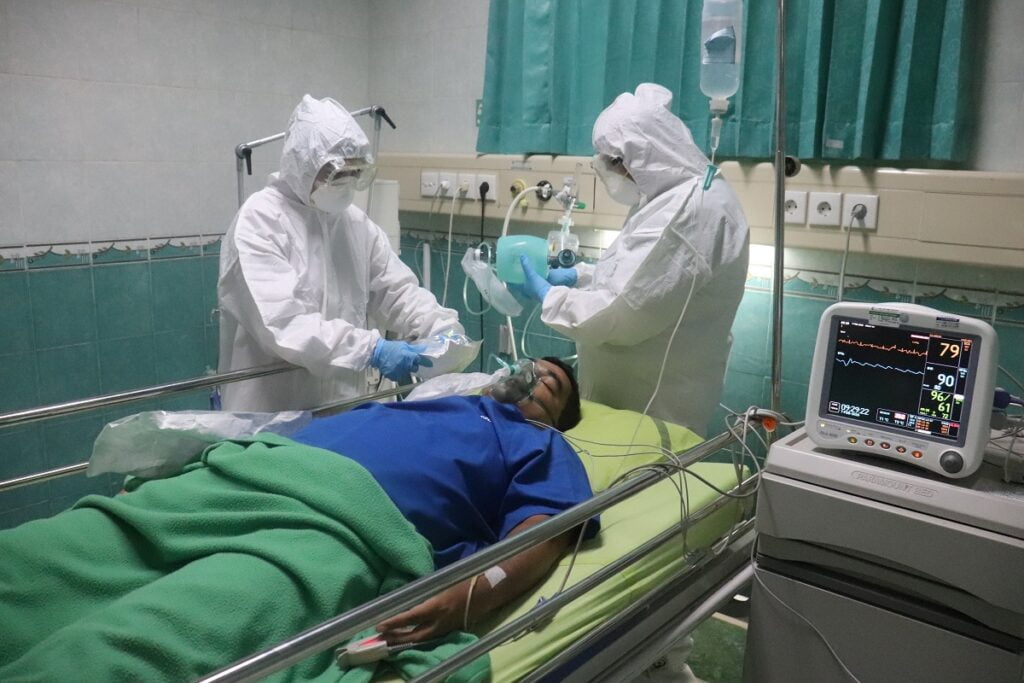Israeli researchers have found the strongest link yet between Vitamin D and the severity of COVID-19.
The researchers, from Bar Ilan University and the Galilee Medical Center, said that there was strong evidence that a deficiency of Vitamin D has a major effect on COVID-19 severity and mortality and that they advise maintaining strong levels of Vitamin D. The researchers also adjusted the study to age, gender, season, chronic disease and found “similar results across the board” highlighting that low vitamin D level contributes significantly to disease severity and mortality.
The study is among the first to analyze Vitamin D levels prior to infection, which facilitates a more accurate assessment than during hospitalization, when levels may be lower secondary to the viral illness, a statement from Bar-Ilan University said.
The findings were published on Thursday in the peer-reviewed journal PLOS ONE.

Low levels of Vitamin D have been associated with a range of autoimmune, cardiovascular, and infectious diseases. Early in the pandemic, health officials began to encourage people to take Vitamin D because it plays a role in promoting immune response and could protect against COVID-19, the university statement said.
The study is based on research conducted during Israel’s first two waves of the coronavirus before vaccines became available.
“We found it remarkable, and striking, to see the difference in the chances of becoming a severe patient when you are lacking in Vitamin D compared to when you’re not,” said Dr. Amiel Dror, a Galilee Medical Center physician and Bar Ilan researcher who was part of the team behind the study.
The records of 1,176 patients admitted between April 2020 and February 2021 to the Galilee Medical Center (GMC) with positive PCR tests were searched for Vitamin D levels measured two weeks to two years prior to infection.
Patients with Vitamin D deficiency (less than 20 ng/mL) were 14 times more likely to have a severe or critical case of COVID than those with more than 40 ng/mL, according to the study. Mortality among patients with sufficient Vitamin D levels was 2.3 percent in contrast to 25.6 percent in the Vitamin D deficient group.
Dr. Amir Bashkin, an endocrinologist who participated in the current study, adds that “This is especially true for the COVID-19 pandemic when adequate Vitamin D has an added benefit for the proper immune response to respiratory illness.”
Sign up for our free weekly newsletter
SubscribeThis study contributes to a continually evolving body of evidence suggesting that a patient’s history of Vitamin D deficiency is a predictive risk factor associated with poorer COVID-19 clinical disease course and mortality,” said study co-author Prof. Michael Edelstein, of the Azrieli Faculty of Medicine of Bar-Ilan University. “It is still unclear why certain individuals suffer severe consequences of COVID-19 infection while others don’t. Our finding adds a new dimension to solving this puzzle.”
Past studies link Vitamin D and COVID-19
This isn’t the first study that has been conducted on the association between Vitamin D levels and the COVID-19 disease. It’s also not the first Israeli study.
An Israeli study published in June 2021 found that 1 in 4 people hospitalized with COVID-19 were deficient in Vitamin D. The study, conducted in the Galilee Medical Center, checked the records of 1,176 hospital patients, with 253 patients having Vitamin D levels on record. Half of those recorded levels were Vitamin D deficient.
In May 2020, a team of researchers at the University East Anglia, England, found links between low levels of Vitamin D and COVID-19 mortality across Europe, according to the scientific online publication Science Alert. Scientists concluded that they could advise Vitamin D supplements to protect against SARS-CoV-2 infection, after publishing the not-yet-peer-reviewed study.

In October 2020, a study published in the Endocrine Society’s Journal of Clinical Endocrinology & Metabolis, found that over 80 percent of 200-plus COVID-19 patients in a hospital in Spain have Vitamin D deficiency.
The researchers found that 80 percent of 216 COVID-19 patients at the Hospital Universitario Marqués de Valdecilla had Vitamin D deficiency, and men had lower Vitamin D levels than women. COVID-19 patients with lower Vitamin D levels also had raised serum levels of inflammatory markers such as ferritin and D-dimer, according to the study.
Vitamin D is a fat-soluble compound that can be received as nutrients from foods like fish, or produced in our skin when a form of cholesterol reacts to UV light.
Known for its role in maintaining calcium levels in our bones, deficiency in this vitamin is responsible for skeletal deformities as well as an increased risk of bone degeneration behind conditions, like osteoporosis.
Related posts

Israeli Medical Technologies That Could Change The World

Harnessing Our Own Bodies For Side Effect-Free Weight Loss

Missing Protein Could Unlock Treatment For Aggressive Lung Cancer




Facebook comments